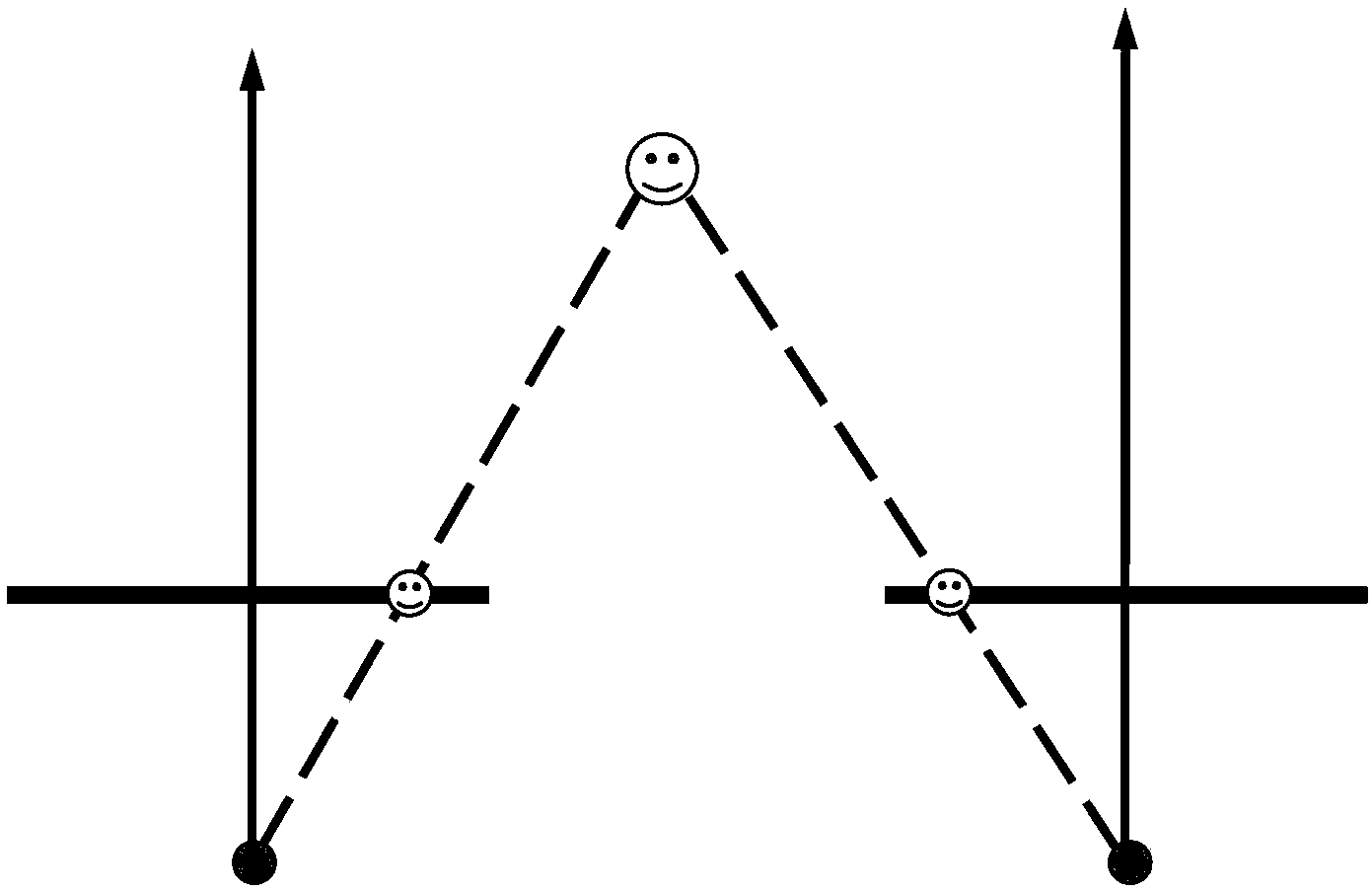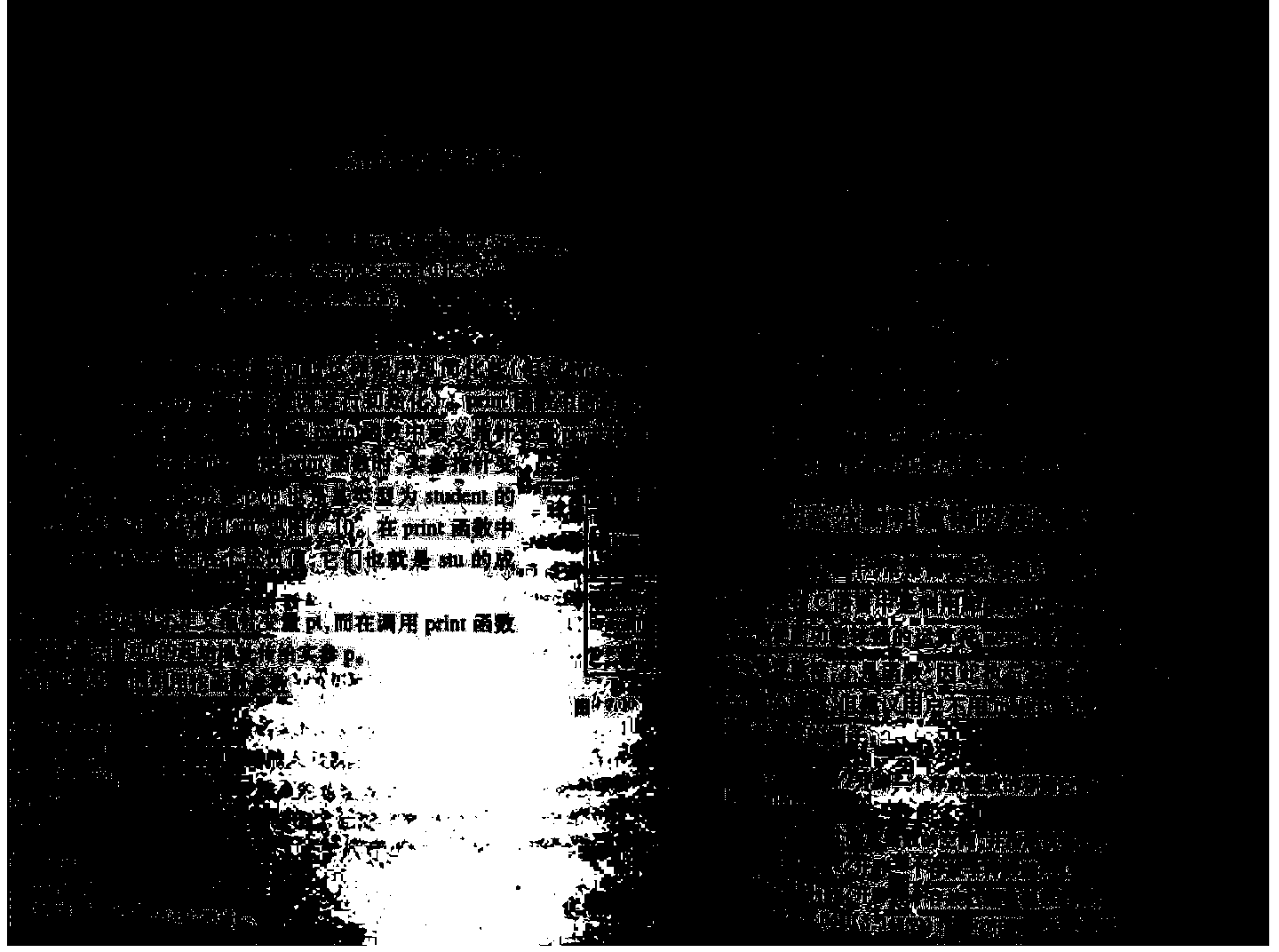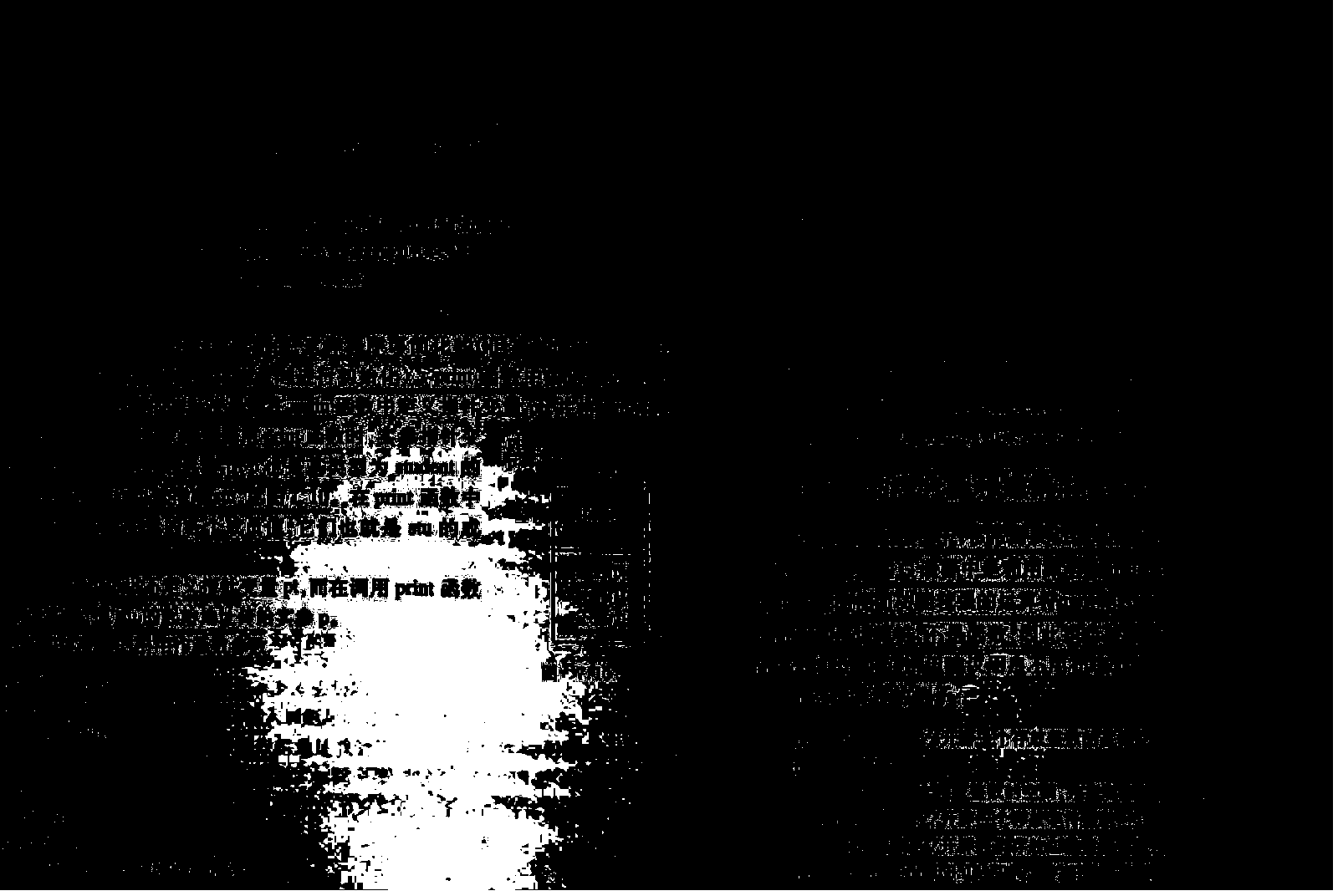A method of flattening deformed pages
A technology of book pages and left images, applied in the field of graphic and text processing, can solve the problems of low recognition rate of flattened images and affect scanning speed, etc., and achieve the effect of ensuring scanning quality and improving scanning speed
- Summary
- Abstract
- Description
- Claims
- Application Information
AI Technical Summary
Problems solved by technology
Method used
Image
Examples
Embodiment Construction
[0037] In order to make the object, technical solution and advantages of the present invention clearer, the implementation manner of the present invention will be further described in detail below in conjunction with the accompanying drawings.
[0038] In order to realize the flattening of deformed pages and improve the scanning speed and the recognition rate of flattened images, an embodiment of the present invention provides a method for flattening deformed pages, see figure 1 , figure 2 , image 3 and Figure 4 , see the description below:
[0039] The embodiment of the present invention is based on digital image correlation (DIC), which is used to measure the topography of the book page in its natural state. DIC is a topography measurement technology based on the principle of binocular vision. see figure 1 , for the spatial point A, use the left and right cameras to image it, which are AL and AR respectively. The basic principle of binocular vision is that if the im...
PUM
 Login to View More
Login to View More Abstract
Description
Claims
Application Information
 Login to View More
Login to View More - R&D
- Intellectual Property
- Life Sciences
- Materials
- Tech Scout
- Unparalleled Data Quality
- Higher Quality Content
- 60% Fewer Hallucinations
Browse by: Latest US Patents, China's latest patents, Technical Efficacy Thesaurus, Application Domain, Technology Topic, Popular Technical Reports.
© 2025 PatSnap. All rights reserved.Legal|Privacy policy|Modern Slavery Act Transparency Statement|Sitemap|About US| Contact US: help@patsnap.com



